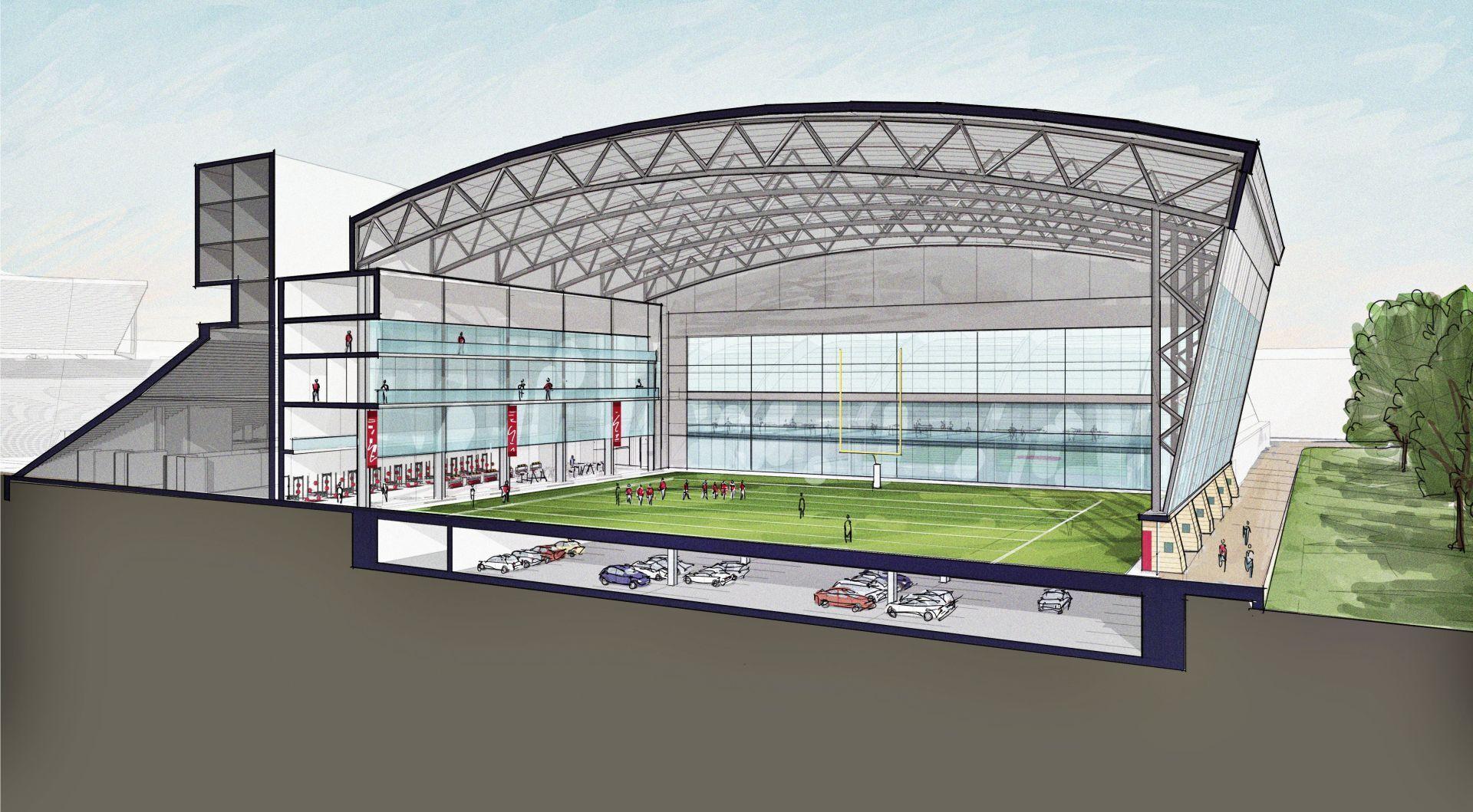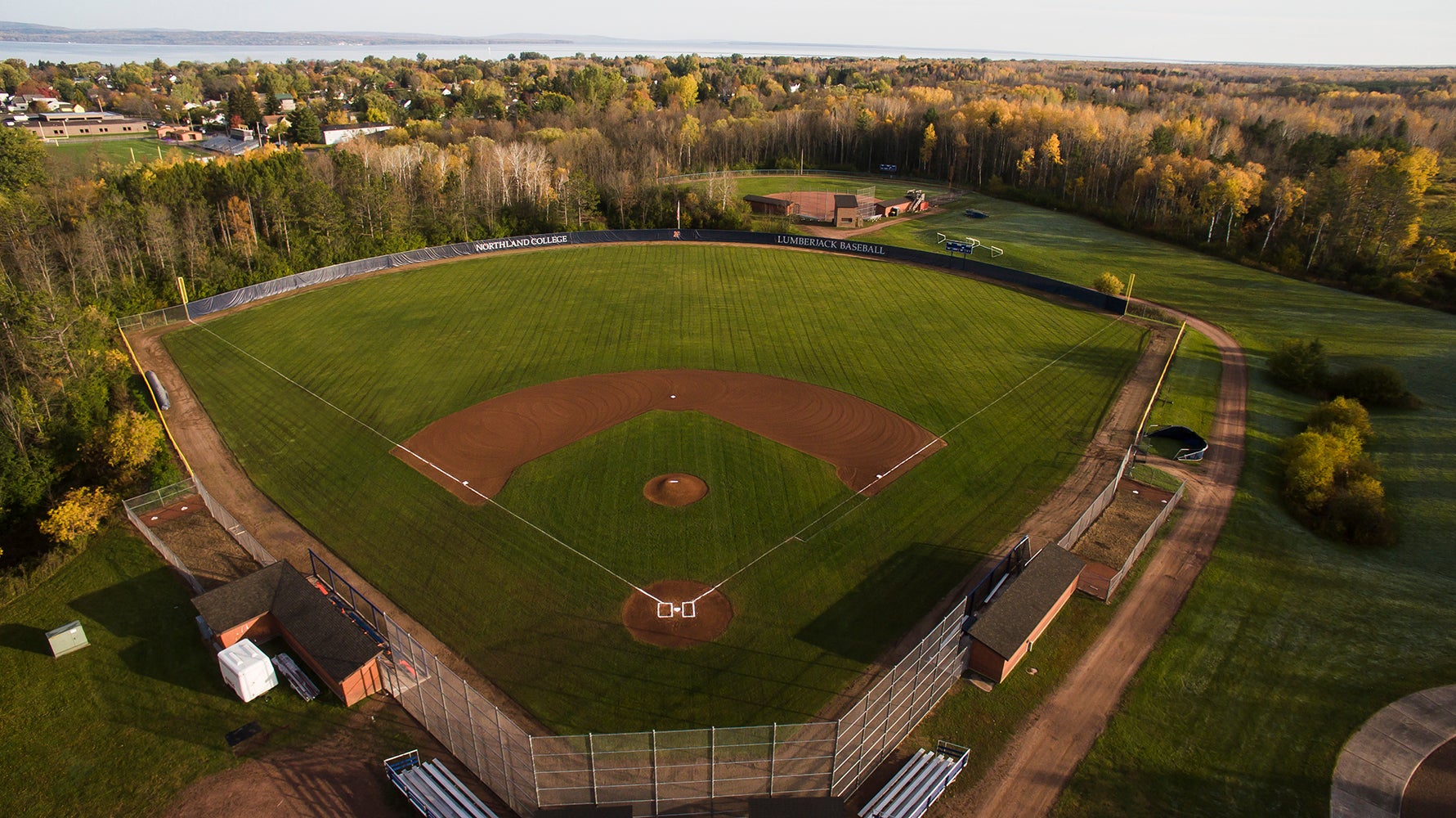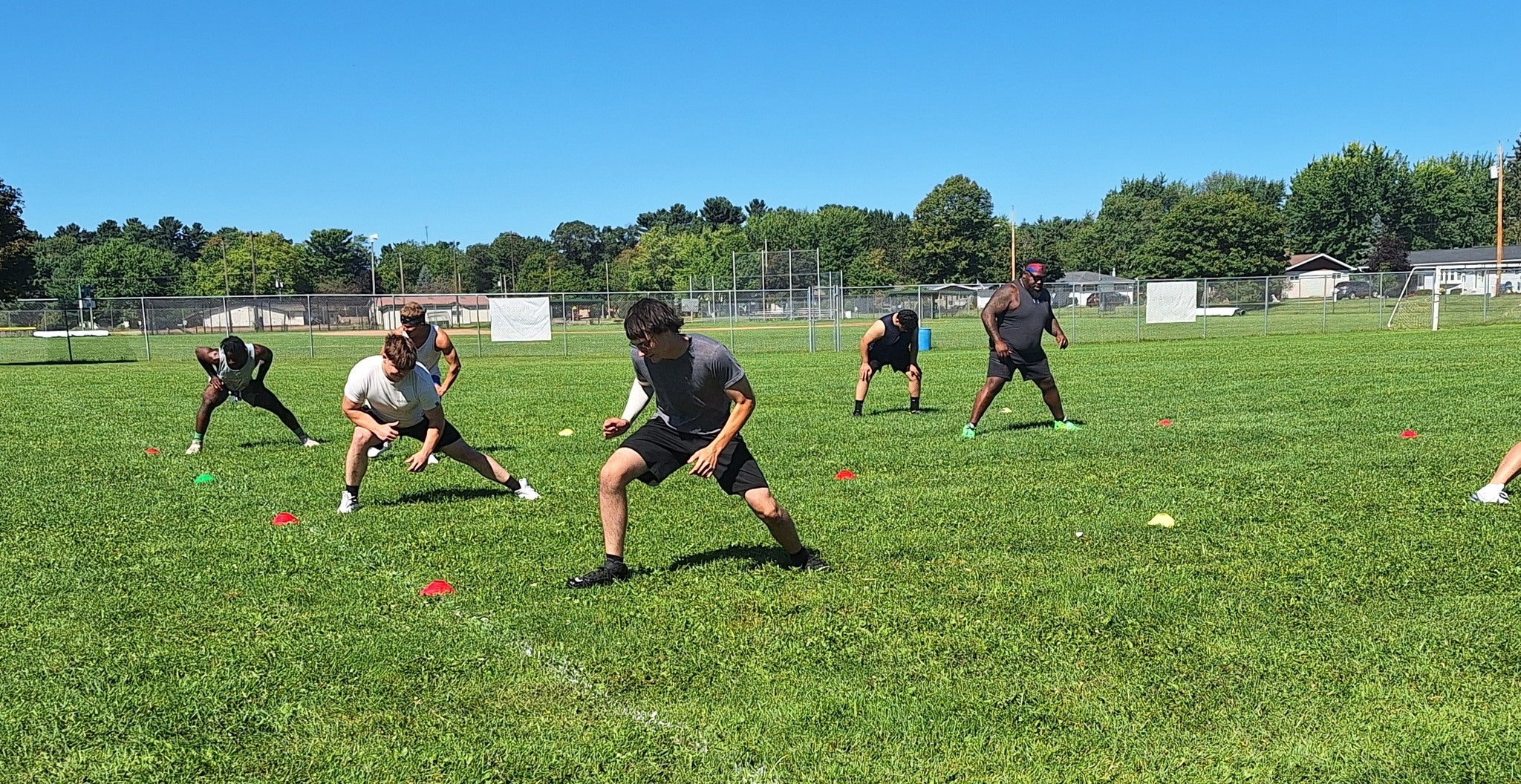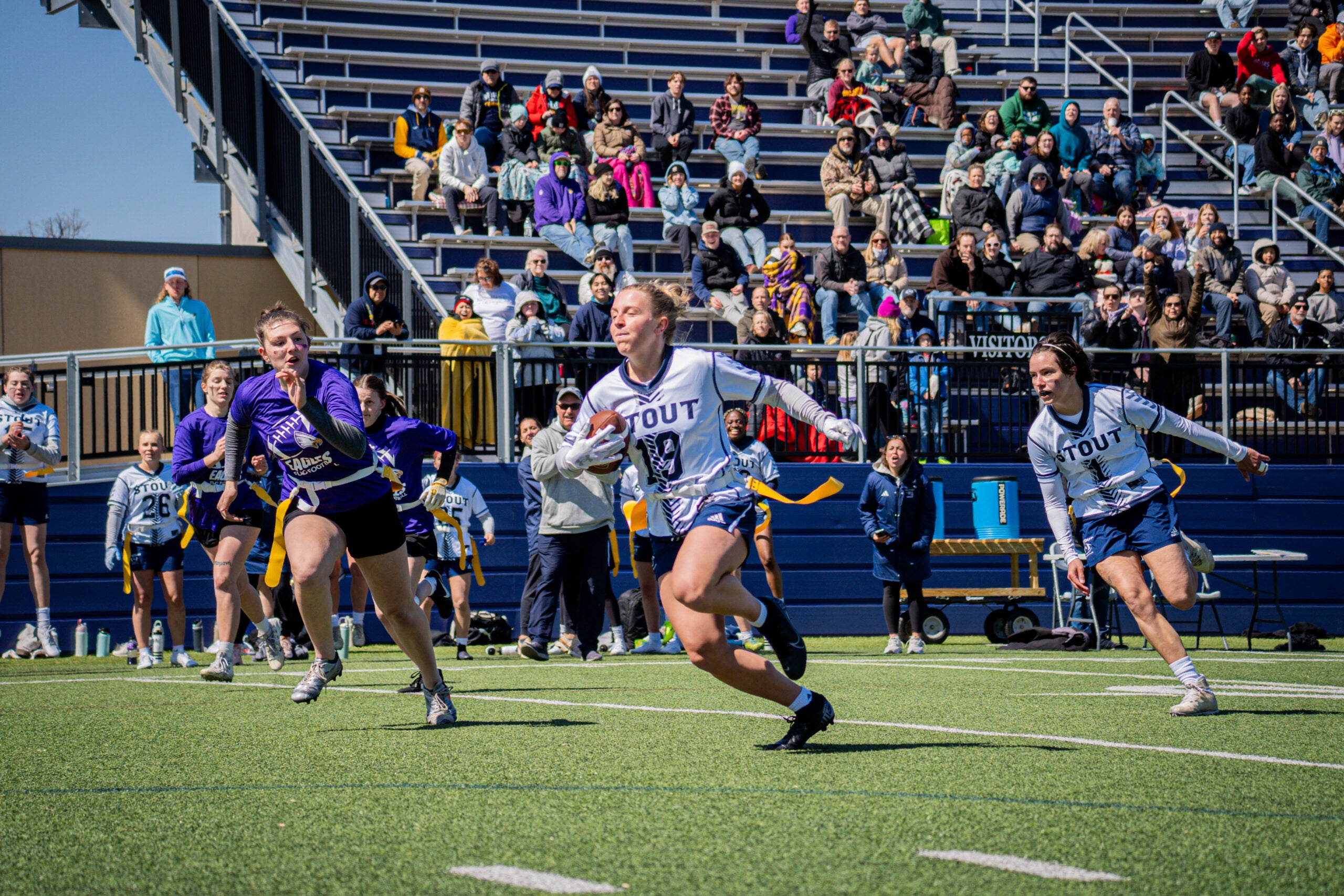The Madison running community is urging the University of Wisconsin-Madison to alter its plans for the new football practice facility on campus that includes a smaller indoor track than the one that stood for nearly 70 years.
In August, UW-Madison demolished the aging Camp Randall Memorial Sports Center, commonly known as the “Shell,” to build a new indoor football field, strength and conditioning center and indoor track.
The $285 million project is one of the largest in UW Athletics history.
News with a little more humanity
WPR’s “Wisconsin Today” newsletter keeps you connected to the state you love without feeling overwhelmed. No paywall. No agenda. No corporate filter.
But both track athletes at UW-Madison and runners in the Madison community say the new space is too small, comparing it to a running track found at a health club instead of one at a Big 10 University.
“The proposed facilities will fail to sustain Wisconsin Track and Field’s winning tradition and jeopardize progress for women athletes made under Title IX,” wrote Maggie Munson, a senior at UW-Madison who started an online petition to “save Wisconsin track and field.”
As of Friday, the petition had 3,734 signatures.
The new football practice facility will replace the McClain Center where the football team has trained since 1988. The McClain Center is the oldest training center in the Big 10.
The university wants to stay competitive with peer institutions in recruiting new student-athletes. Neighboring schools including the University of Minnesota, Northwestern and Notre Dame have all completed indoor practice field projects for their football programs in the last 10 years.
When the project was announced, UW Athletics spokesperson Patrick Herb said student-athletes from all 23 sports would have access.
While Badger Football gets all of the attention, and is the chief money maker for UW Athletics, UW-Madison’s cross country and track and field programs also have a history of excellence with a combined 140 B1G Ten team titles, 88 individual NCAA titles, and 30 Olympians.
“These programs are the winningest at Wisconsin, and they develop a diverse community of student-athletes into hard-working leaders and change-makers,” Munson wrote.
Compared to other Big 10 schools, track and field will now not have adequate facilities, according to the petition.
UW-Madison spokesperson John Lucas said while the new indoor practice facility will include training elements for men and women’s track and field student-athletes, it would not serve as a track and field competition venue.
“The UW track and field teams will have an alternate location for indoor training until the new facility is completed,” Lucas said.
Lucas said the more than 300 men and women student athletes across UW sports who trained at the McClain Center or the Shell will have access to the new indoor practice facility.
The Madison running community is also upset with the proposal.
For decades, runners from the community have had access to the Shell. Now it is unclear if they will be able to use the new practice facility. And if they do, runner Paul Miller says there will be fewer lanes and tight corners, making it dangerous for fast runs.
Miller is one of the organizers of Movin’ Shoes Running Club, which is supported by Movin’ Shoes store.
The club has nearly 400 members, many who have used the Shell for decades during inclement weather.
“UW-Madison is a land grant university with an obligation to be part of the community,” Miller said. “Yes, we’re not saving lives with this track, but it’s about a healthy lifestyle and being part of the community. UW- Platteville, UW-Whitewater, they have indoor facilities that they open up to their communities. So this is a true frustration.”
Wisconsin Public Radio, © Copyright 2025, Board of Regents of the University of Wisconsin System and Wisconsin Educational Communications Board.







